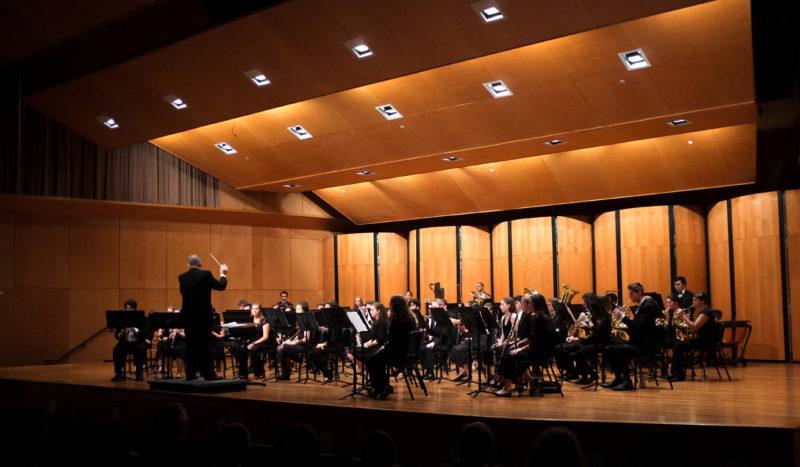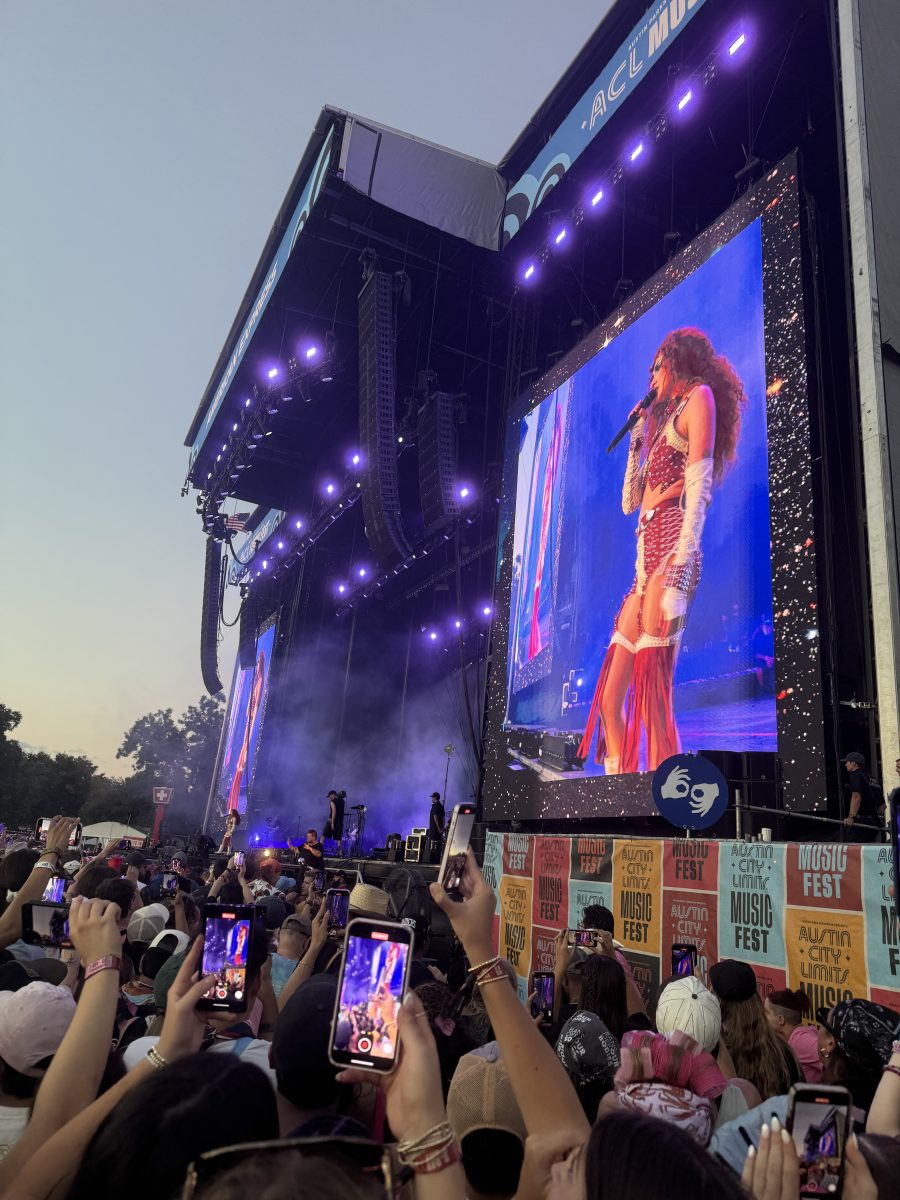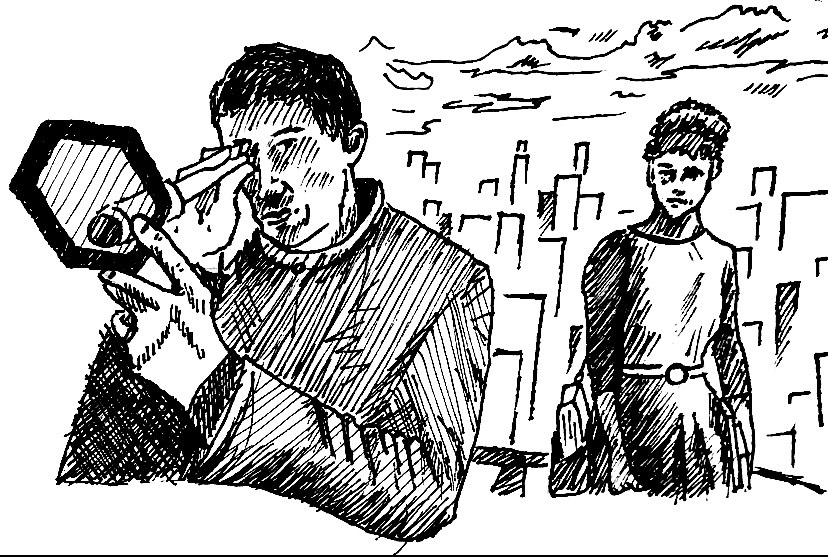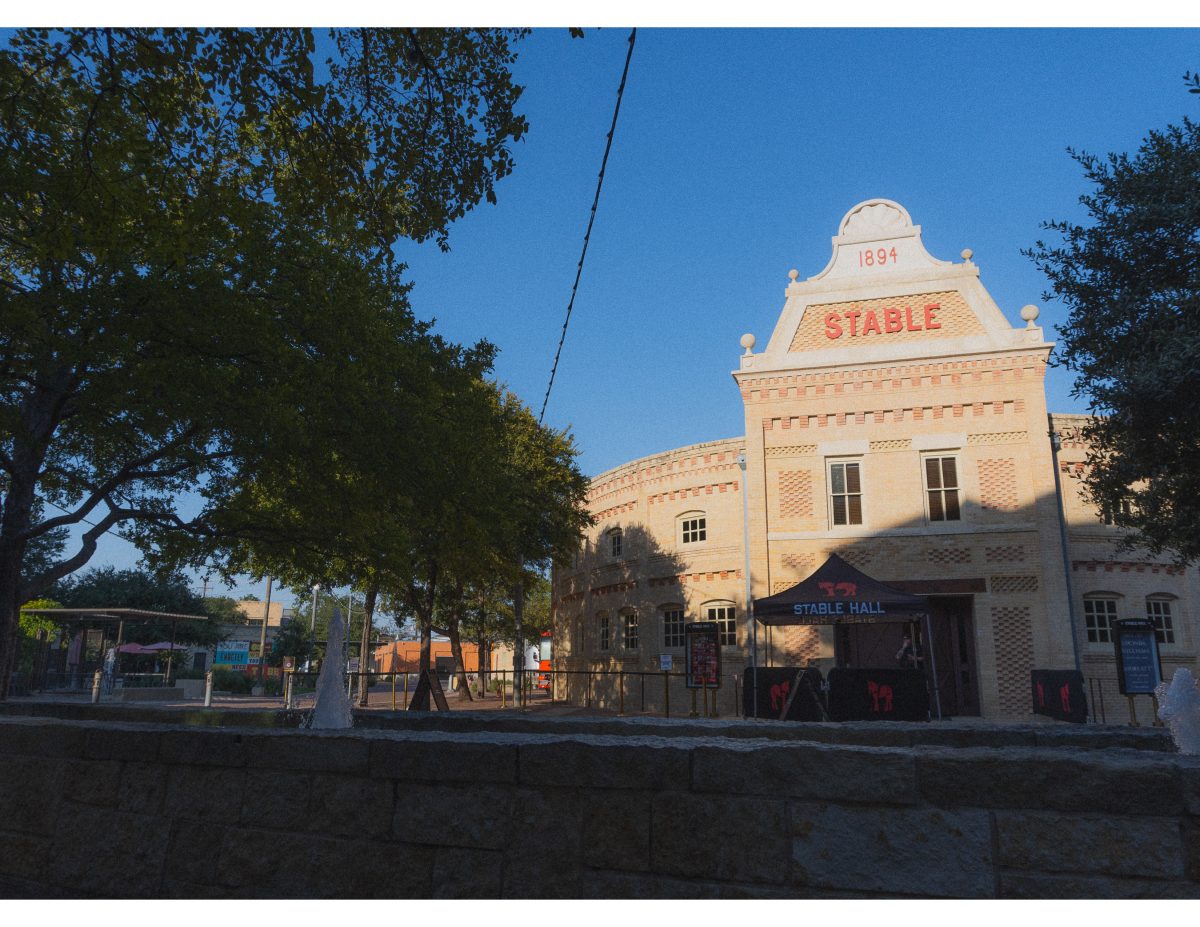Trinity’s Symphonic Wind Ensemble Fall Concert was a musical game of baseball. It may sound strange to compare a major league sport with a symphony of bassoons, oboes and saxophones, but the Fall Concert used notes and melodies to conjure a world of classic Americana.
The concert, conducted by James Worman, began with “Early Light,” composed by Carolyn Bremer. I enjoyed how this song combined high pitches with lower ones, building up to a crescendo of melody, with a glockenspiel providing percussion throughout.
After this song came a quartet of Maryland pieces composed by Jack Stamp. These pieces were augmented by a vocal accompaniment from Jacquelyn Mattava, opera singer and accomplished concert artist. The first two songs, “At the Edge of the Choptank River” and “A Maryland Road,” felt nostalgic and charming.
The third song, “On Chesapeake Shores: A Fisherman’s Sonnet,” added some comedic relief. The lyrics told the story of a lifelong fisherman who only wants to go to heaven if he can be reassured that he can fish there: “If there’s fishing in that other land, I shall not hesitate to go alone … So if to fish be not of heaven’s worth, then may I, with the meek, be left on Earth!” Even as the lyrics were more down-to-earth in this song, Mattava’s vocals remained beautiful.
The final song, “The Sires of Seventy-Six,” was darker in content; the lyrics were reminiscent and mournful for soldiers who “nobly dared the thunderbolts of war” in times past.
“Chester,” composed by William Schuman, was introduced by Worman as a “two-for-one” because Schuman’s song, part of his “New England Triptych,” was based on the work of one-eyed composer William Billings. Worman says that Billings as quite the character.
“He had one leg shorter than the other, only had one eye, there were questions about his ability to perceive any need for personal hygiene, cursed like a sailor,” Worman said.
Regardless of his idiosyncrasies, Billings’ musical gift shined through Schuman’s music. The song was very energetic, with sparse periods followed by frenzied instrumentation. I appreciated the vitality this song brought, and the dedication that the ensemble must have had in order to learn it.
Morton Gould as one of the composers responsible for the widespread popularity of “˜band music,’ the type of music that you can hear marching bands play at modern sporting events. Although Gould composed music for a variety of venues “” Broadway, film and ballet were just a few of his numerous specialties “” he always believed music should be for everyone. In an interview for the New Yorker magazine in 1953, he said “I’ve always felt that music should be a normal part of the experience that surrounds people. It’s not a special taste. An American composer should have something to say to a cab driver.” Coming out of an era where composers were known for their elegance and class, this egalitarian view was revolutionary. Gould’s “Ballad for Band” was played very well. Like with the other songs, moments of quiet were paired with ones of great intensity.
Finally, the event concluded with John Philip Sousa‘s “National Game.” Sousa is famous for his skills as a composer and conductor, and his successful leadership of the United States Marine Band. John Philip Sousa was especially devoted to baseball. A pitcher himself, he composed “National Game” for the 50th anniversary of baseball’s National League. This song felt very cheerful and lighthearted.
Maggie Lupo, first-year English major and flute player, said that “Chester” had been the most popular song with the audience. Her own favorite songs?
” “˜Early Light’ and “˜Chester’ [because] they both have a lot of energy, they’re both really fun to play, and I really like the melodies,” Lupo said.
Lupo also described the difference between performing for a collegiate and a high school one.
“The music itself is not necessarily any harder or easier, it’s just the level of preparation is different,” Lupo said. “You only rehearse four hours a week total, and there’s a lot more music, so there’s more emphasis on getting things down and working on them outside of class.”
I’ve never been a baseball fan “” or marching band enthusiast “” yet the music played by the Wind Ensemble appealed to me; the songs were playful and fun, and reminded me of strolling outside in a crowded park. Overall, this was a great performance, and I’m excited to see what the Symphonic Wind Ensemble has in store next.








